Brussels now an ISIS vs. West battleground, faces crisis of confidence
Concerns at home and abroad about whether authorities are up to the task of containing extremists
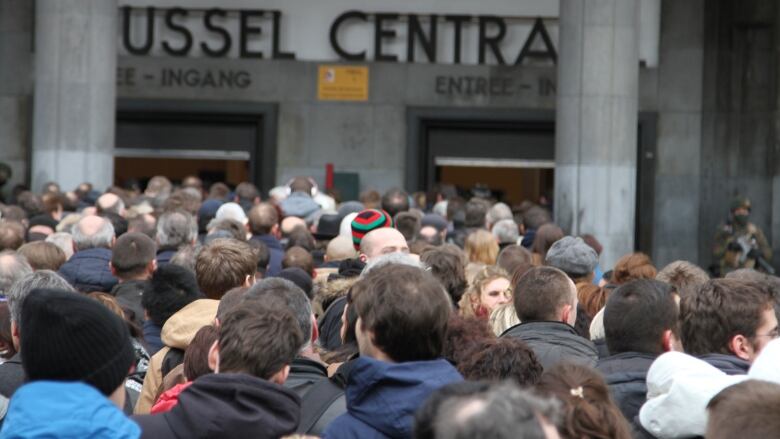
The long, hushed line of commuters inching into the Brussels central train station Thursday speaks to the depth of patience now required to live in a city under an active threat.
Several well-armed soldiers in fatigues and with faces covered watch over the crowd as it waits for the bag-by-bag search inside. Would-be passengers hand over their belongings as they would a train ticket, an act just as necessary if they want to get home.
- Belgium mourns as hunt for suspects continues
- After Paris Brussels, a Europe full of 'little Trumps'
- Belgian security forces 'uniquely overstretched'
The extraordinary security is also deemed necessary to get life here going again; to try to restore confidence in a country whose success or failure could set the tone for wider Europe's ability to cope with what many here describe as war.
Brussels, the usually staid seat of the European Union, has become prime battleground in ISIS versus the West. And that leaves many nervous, as reports are now suggesting there could be dozens more attackers in Europe waiting their turn.
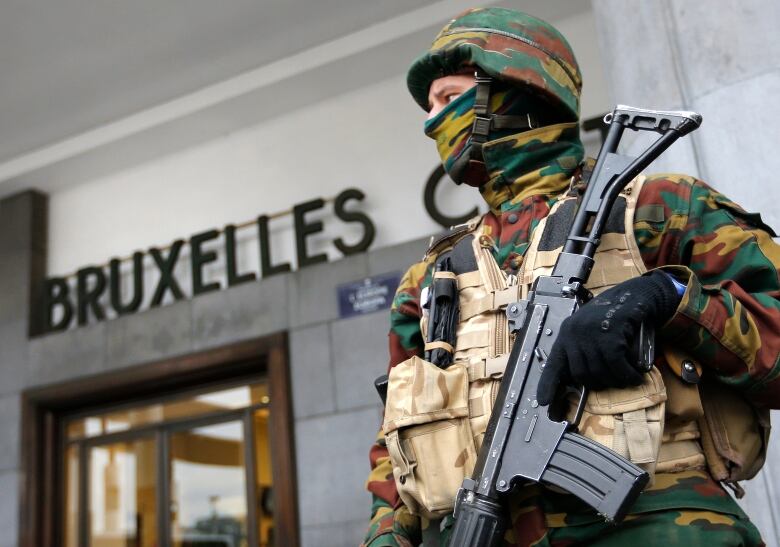
As Belgium's federal prosecutor revealed, it fell to the taxi driver who took Tuesday's attackers to the airport to lead investigators just yesterday to an apartment full of disconcerting evidence of what extremists could get away with here.
What they found: 15 kilograms of TATP (triacetone triperoxide, the so-called "mother of Satan" explosive also used in the November Paris attacks), 150 litres of acetone, 30 litres of peroxide, detonators, and other components to make bombs.
"What has been found is quite worrying," says arms expert Nils Duquet, with the Flemish Peace Institute. "There's a clear connection to the attacks in Paris. Not only with perpetrators, but also the type of explosives."
New battleground
Belgium has clearly become both a convenient launching pad and now battleground for ISIS operatives, and a logical place from which to work if you're intent on attacking Paris, says Duquet.
The Paris attackers did, after all, seem to operate out of Belgium at will; travelling back and forth, moving weapons and bombs across the border with seeming ease.
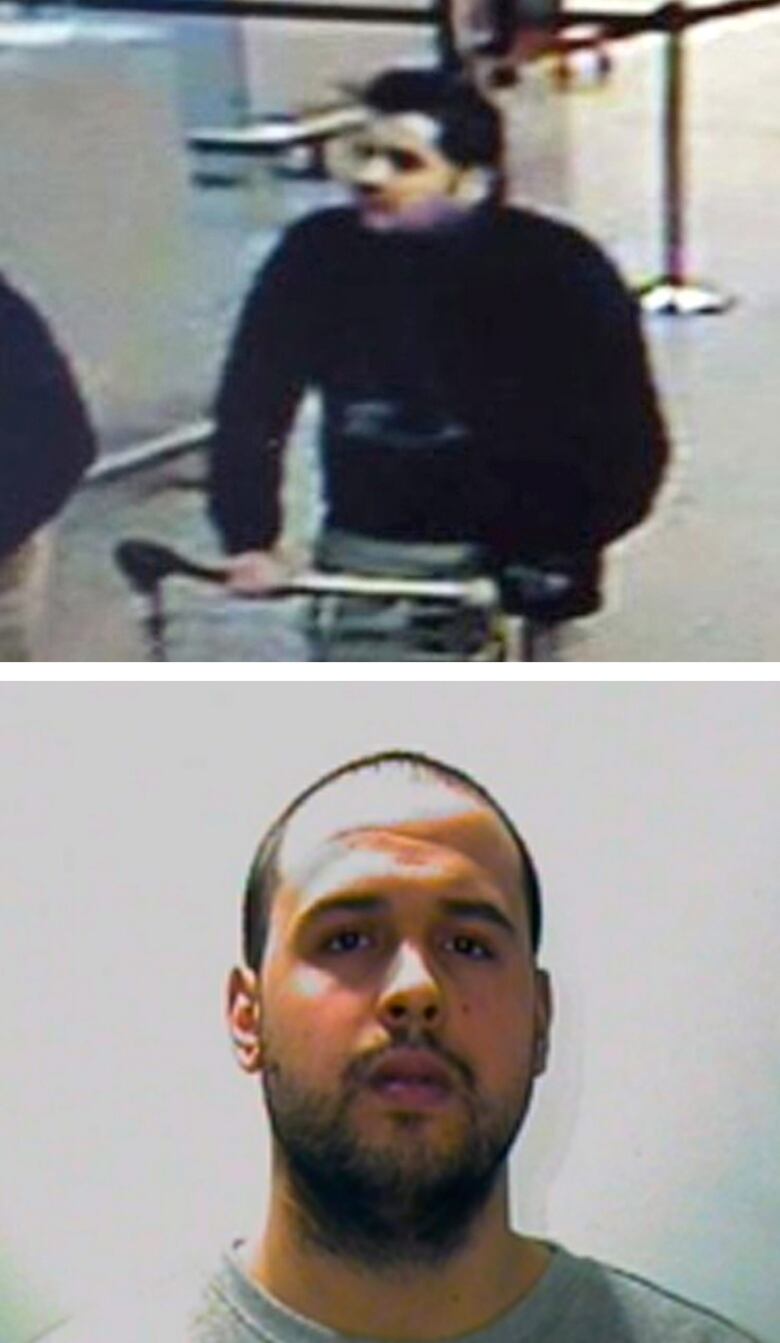
Both the explosive suicide vests and the guns used in Paris likely came through Brussels, known as an easy black market hub for assault rifles leaking in mostly from the Balkans.
Further, it took authorities here four months to track down the last surviving Paris attacker, Salah Abdelslam. He was found last week in an apartment not far from where his mother lives.
Critics quietly blame overwhelmed authorities in the city that is home to Europe's nerve centre.
They point to Turkey's claim yesterday it had warned Belgium about one of the attackers, Ibrahim al Bakraoui, a man it deported apparently for extremist activity. Belgium denies knowing of an extremist link.
Others also point to the fact that at least one, possibly two, of this week's attackers were wanted by Interpol. And yet they hadn't been picked up.
Today, the country's interior minister confirmed he tried to resign in light of the various missteps in the related investigations. The prime minister refused the resignation.
Up to the task?
In light of all this there are growing concerns here and abroad about whether Belgium's authorities are up to the enormous task they face, essentially, on behalf of the continent and the West.
Secretary of State John Kerry, who offered help with the investigation immediately after the attack, will be here in Brussels tomorrow, and likely not only to show solidarity.
A spokesman said the attacks "underscored the need for a continued and concerted push by all nations to counter violent extremism."
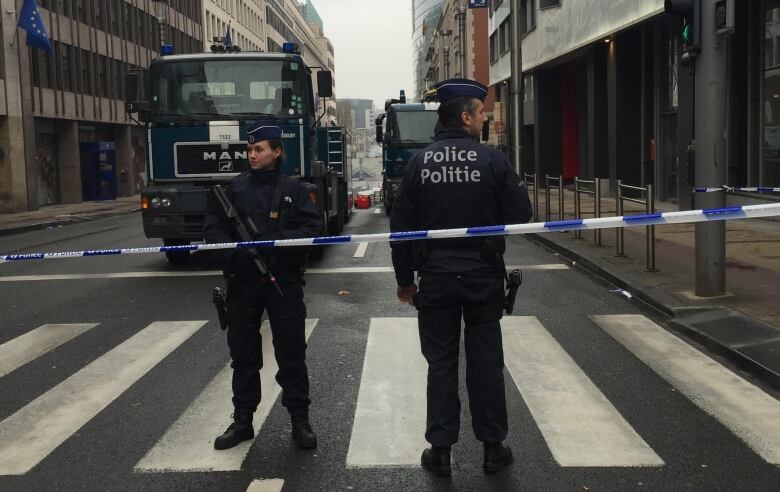
In an acknowledgment of the wider challenge, the government has promised in the past to increase its police numbers, and says it is happy to cooperate with both European and U.S. counterparts on intelligence and counter-terrorism.
But there is skepticism they have the means or the infrastructure to contain an outsized threat at home, partly exacerbated by the estimated 500 citizens who have gone off to fight with ISIS, according to security analysts the highest per capita anywhere.
"They're way behind the ball, and they're paying a terrible price," U.S. Rep. Adam Schiff, the senior Democrat on the House Intelligence Committee, told Reuters.
The lack of confidence in Brussels is reflected in the cautious travel advice the U.K. has provided to its citizens, the kind of advice often reserved for much more troubled parts of the world.
On Tuesday, Britain advised against all but essential travel to Brussels, diplomatically adding this was the Belgian government's advice too. It lifted that advice yesterday but, as the fugitives continue to elude Belgian authorities, it advised citizens to "remain alert and vigilant, and stay away from crowded places."
The U.S. State Department says government personnel have been requested to defer non-essential travel to Brussels until March 29. It also issued a Europe-wide alert warning of "near-term attacks."
Are bag searches, masked soldiers enough?
A quick sweep of the hundreds of messages scrawled in chalk at the makeshift memorial in central Brussels, and it's easy to see that Belgians expect more than guns and counter-terrorism efforts to win the fight against extremists here.
There are calls for unity and solidarity, for religious harmony, and for inclusiveness. Those could be longer-term solutions.
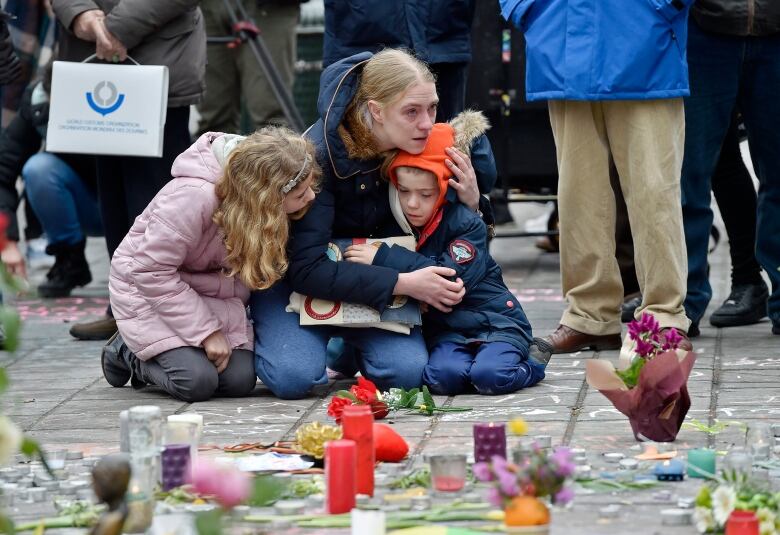
There are of course other scrawled messages that encourage a much harsher response to the attackers and their ideology.
The fact remains, however, that in the short term, many Belgians returning to work today for the first time since the attacks aren't feeling reassured.
They, who must remain here whatever comes and line up for security checks at the metro and the train stations want to know: Will there be more attacks, as the authorities warn? Will they be protected? And are bag searches and masked soldiers enough?
"In Brussels, it's not the same feeling, the same atmosphere that we used to know," says resident MatthiasGarcia.
Belgians are not feeling very confident, Garcia says. He is "very sad and full of fear."
With files from Reuters News Agency












_(720p).jpg)


 OFFICIAL HD MUSIC VIDEO.jpg)
.jpg)



























































































